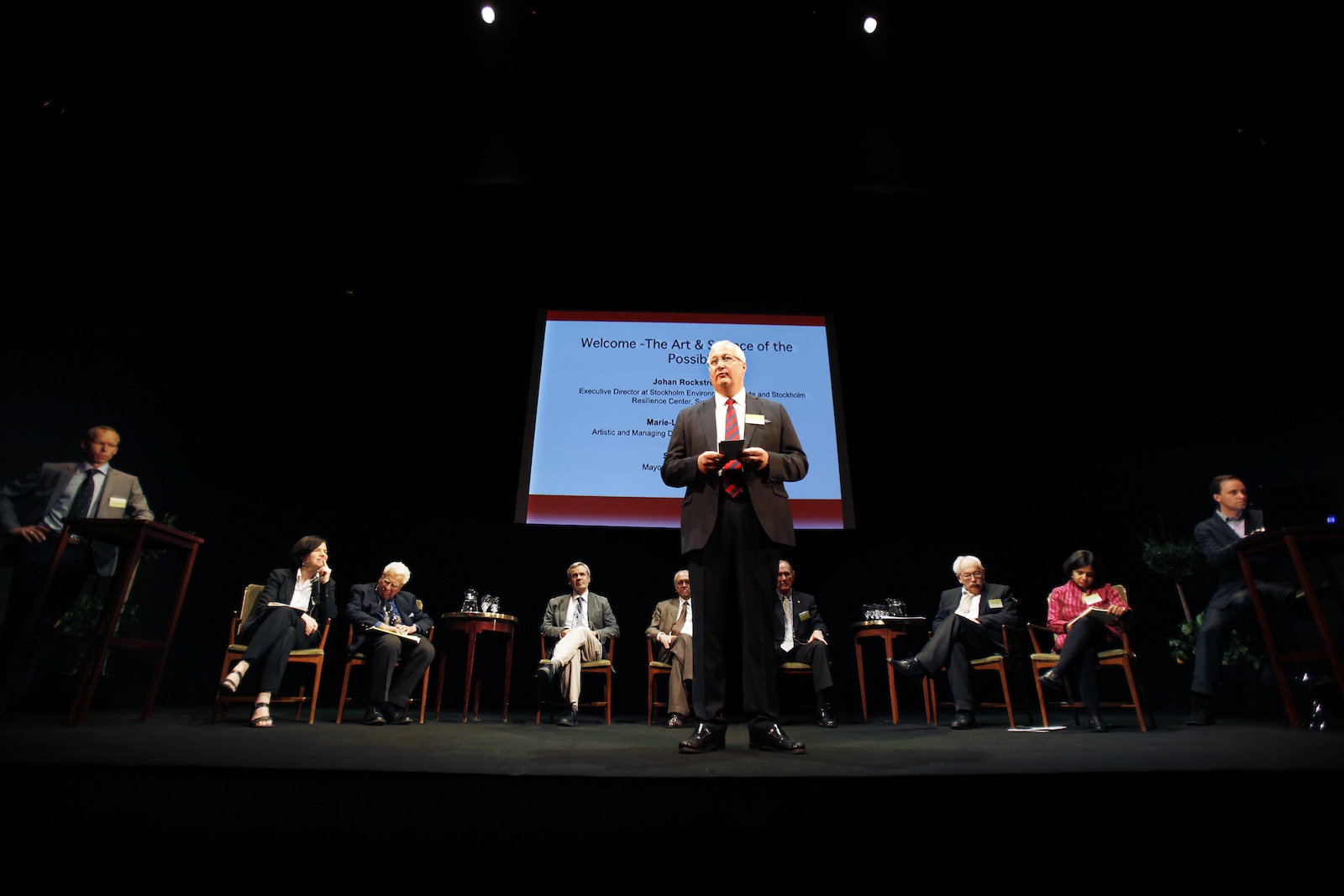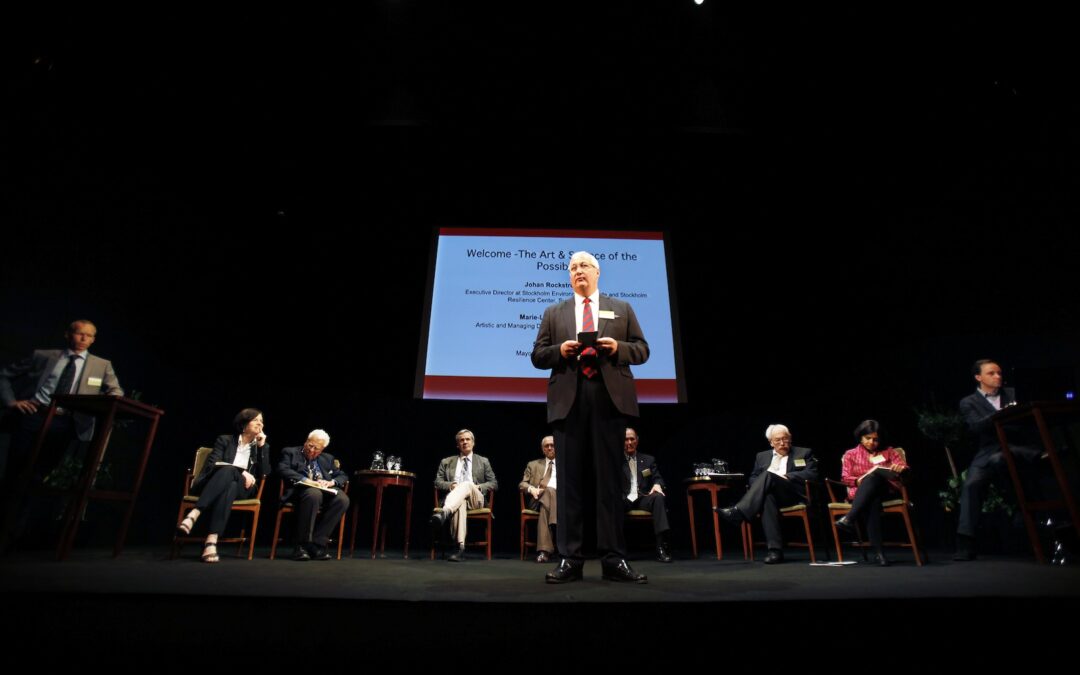
It's really crystal clear
Recognizing the magnitude of changes on a planetary scale, in relation to the sustainability of our resource economy and monetary economic potentials, requires not merely our attention, but meaningful action if we are to manage needs appropriately. The Centrist Party recognizes that national security is tied to global resource capacity and therefore our attention includes all relevant issues that affect our national security.
While there are many relevant points in the memorandum, we must consider capacity, sustainability and economic feasibility in all considerations. That being said, the goals of the memorandum are important and rapid meaningful movement to address both needs and responsibilities is vital to the future economy and security of all nations.
Implications and Goals
The report also indicates that the importance and need for science based policy is greater than ever considering the magnitude of current and future changes based on human activity. All things considered, our ability to be responsible is also constrained by the inertia’s we have set in motion. How to address this pragmatically will be challenging but our ability to progress forward must not be ignored. International cooperation will be required as national needs and economic sustainability must be addressed. All this must be in consideration of global needs to maintain national and international security as these things are now intrinsically intertwined.
Highlights From The Memorandum:
Science makes clear that we are transgressing planetary boundaries that have kept civilization safe for the past 10,000 years. Evidence is growing that human pressures are starting to overwhelm the Earth’s buffering capacity.
Humans are now the most significant driver of global change, propelling the planet into a new geological epoch, the Anthropocene. We can no longer exclude the possibility that our collective actions will trigger tipping points, risking abrupt and irreversible consequences for human communities and ecological systems.
We cannot continue on our current path. The time for procrastination is over. We cannot afford the luxury of denial. We must respond rationally, equipped with scientific evidence.
The Memorandums Reconmendations:
We recommend a dual track approach:
- a) emergency solutions now, that begin to stop and reverse negative environmental trends and redress inequalities within the current inadequate institutional framework, and
- b) long term structural solutions that gradually change values, institutions and policy frameworks. We need to support our ability to innovate, adapt, and learn.
- Reaching a more equitable world: Unequal distribution of the benefits of economic development are at the root of The Stockholm Memorandum poverty. Despite efforts to address poverty, more than a third of the world’s population still live on less than $2 per day. This needs our immediate attention. Environment and development must go hand in hand. We need to:
- Achieve the Millennium Development Goals, in the spirit of the Millennium Declaration, recognising that global sustainability is a precondition of success.
- Adopt a global contract between industrialized and developing countries to scale up investment in approaches that integrate poverty reduction, climate stabilization, and ecosystem stewardship.
- Managing the climate – energy challenge: We urge governments to agree on global emission reductions guided by science and embedded in ethics and justice. At the same time, the energy needs of the three billion people who lack access to reliable sources of energy need to be fulfilled. Global efforts need to:
- Keep global warming below 2ºC, implying a peak in global CO2 emissions no later than 2015 and recognise that even a warming of 2ºC carries a very high risk of serious impacts and the need for major adaptation efforts.
- Put a sufficiently high price on carbon and deliver the G-20 commitment to phase out fossil fuel subsidies, using these funds to contribute to the several hundred billion US dollars per year needed to scale up investments in renewable energy.
- Creating an efficiency revolution: We must transform the way we use energy and materials. In practice this means massive efforts to enhance energy efficiency and resource productivity, avoiding unintended secondary consequences. The “throw away concept” must give way to systematic efforts to develop circular material flows. We must:
- Introduce strict resource efficiency standards to enable a decoupling of economic growth from resource use.
- Develop new business models, based on radically improved energy and material efficiency.
- Ensuring affordable food for all: Current food production systems are often unsustainable, inefficient and wasteful, and increasingly threatened by dwindling oil and phosphorus resources, financial speculation, and climate impacts. This is already causing widespread hunger and malnutrition today. We can no longer afford the massive loss of biodiversity and reduction in carbon sinks when ecosystems are converted into cropland. We need to:
- Foster a new agricultural revolution where more food is produced in a sustainable way on current agricultural land and within safe boundaries of water resources.
- Fund appropriate sustainable agricultural technology to deliver significant yield increases on small farms in developing countries.
- Moving beyond green growth: There are compelling reasons to rethink the conventional model of economic development. Tinkering with the economic system that generated the global crises is not enough. Markets and entrepreneurship will be prime drivers of decision making and economic change, but must be complemented by policy frameworks that promote a new industrial metabolism and resource use. We should:
- Take account of natural capital, ecosystem services and social aspects of progress in all economic decisions and poverty reduction strategies. This requires the development of new welfare indicators that address the shortcomings of GDP.
- Reset economic incentives so that innovation is driven by wider societal interests and reaches the large proportion of the global population that is currently not benefitting from these innovations.
- Reducing human pressures: Consumerism, inefficient resource use and inappropriate technologies are the primary drivers of humanity’s growing impact on the planet. However, population growth also needs attention. We must:
- Raise public awareness about the impacts of unsustainable consumption and shift away from the prevailing culture of consumerism to sustainability.
- Greatly increase access to reproductive health services, education and credit, aiming at empowering women all over the world. Such measures are important in their own right but will also reduce birth rates.
- Strengthening Earth System Governance: The multilateral system must be reformed to cope with the defining challenges of our time, namely transforming humanity’s relationship with the planet and rebuilding trust between people and nations. Global governance must be strengthened to respect planetary boundaries and to support regional, national and local approaches. We should:
- Develop and strengthen institutions that can integrate the climate, biodiversity and development agendas.
- Explore new institutions that help to address the legitimate interests of future generations.
- Enacting a new contract between science and society: Filling gaps in our knowledge and deepening our understanding is necessary to find solutions to the challenges of the Anthropocene, and calls for major investments in science. A dialogue with decision-makers and the general public is also an important part of a new contract between science and society. We need to:
- Launch a major research initiative on the earth system and global sustainability, at a scale similar to those devoted to areas such as space, defence and health, to tap all sources of ingenuity across disciplines and across the globe.
- Scale up our education efforts to increase scientific literacy especially among the young.
Web Site: Stockholm Memorandum
http://globalsymposium2011.org/
Download Wiki of Stockholm Memorandum
Nobel Laureates who signed the Stockholm Memorandum
- Peter Agre – The Nobel Prize in Chemistry 2003
- Werner Arber – The Nobel Prize in Physiology or Medicine 1978
- Paul J. Crutzen – The Nobel Prize in Chemistry 1995
- Peter Doherty – The Nobel Prize in Physiology or Medicine 1996
- Murray Gell-Mann – The Nobel Prize in Physics 1969
- Nadine Gordimer – The Nobel Prize in Literature 1991
- David Gross – The Nobel Prize in Physics 2004
- Peter Grünberg – The Nobel Prize in Physics 2007
- Walter Kohn – The Nobel Prize in Chemistry 1998
- Harold Kroto – The Nobel Prize in Chemistry 1996
- Jim Mirrlees – The Sveriges Riksbank Prize in Economic Sciences in Memory of Alfred Nobel 1996
- Mario J. Molina – The Nobel Prize in Chemistry 1995
- Douglass North – The Sveriges Riksbank Prize in Economic Sciences in Memory of Alfred Nobel 1993
- Douglas Osheroff – The Nobel Prize in Physics 1996
- Elinor Ostrom – The Sveriges Riksbank Prize in Economic Sciences in Memory of Alfred Nobel 2009
- Carlo Rubbia – The Nobel Prize in Physics 1984
- Amartya Sen – The Sveriges Riksbank Prize in Economic Sciences in Memory of Alfred Nobel 1998
- John Sulston – The Nobel Prize in Physiology or Medicine 2002
Unite America with The Centrist Party
- Enough is enough. We must unite to reclaim our government. Join the Centrist Party. Work together to heal our nation and return balance in governance and common sense for the nation and the people.
The Centrist News
Check out Centrist News & Perspectives for centrist media intelligence:

Recent Comments